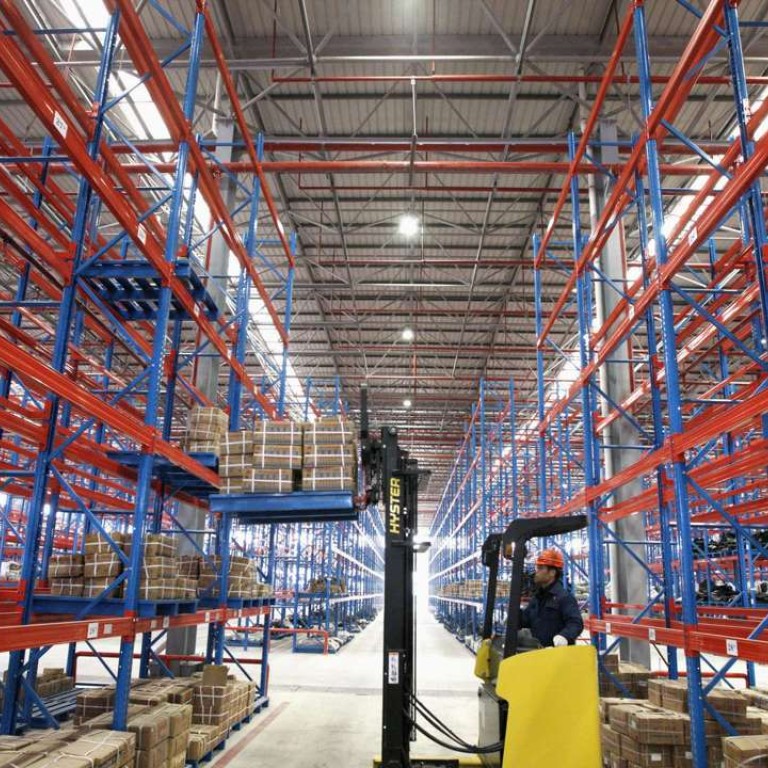
Logistics firms push for Hong Kong IPOs amid online shopping boom
China Logistics Property’s listing offer last week could open floodgates to others, say experts, as companies rush to expand warehousing facilities
China’s leading logistics property groups have recently launched share listing plans in Hong Kong, in an effort to raise funds to fuel expansion amid a surge in e-commerce growth.
The logistics property sector is still at a very early stage in China, even as rapid growth in online shopping has driven demand for modern warehouse facilities.
China Logistics Property, formerly known as Shanghai Yupei Group, debuted its listing offer last week in Hong Kong. Plans to begin public subscription in late June were delayed amid volatile global markets owing to the Brexit factor. But the company subsequently raised HK$3.3 billion, towards the upper end of its target-range.
Shanghai-based e-Shang Warehousing Services, another industry leader, reportedly plans to list shares in Hong Kong before year end in a deal expected to raise US$1 billion.
“The development of high-quality warehousing has not caught up to the pace of e-commerce in China. The supply shortage creates room for industry growth,” said Eva Lee, a property analyst at UBS.
Grade A logistics property in China is less than 30 million square metres, which is minuscule compared to the stock available across the United States, equivalent to nearly 155 million square metres, according to a property consultancy JLL report in 2015.
The development of high-quality warehousing has not caught up to the pace of e-commerce in China. The supply shortage creates room for industry growth
Meanwhile, China’s logistics property market has long been occupied by cash rich foreign investors, partly because the industry requires heavy capital.
“An IPO could help a local firm expand financing channels, receiving cheaper bank loans and grant them the ability to issue bonds,” Lee said.
Singapore-listed GLP, a logistics developer and fund manager, commands almost 60 per cent of China’s modern warehouses market share as of the end of 2015, DTZ C&W estimates.
Despite being the two largest privately-owned local providers, China Logistics Property and e-Shang in total account for an 11.7 per cent share of the market.

“Seeking capital support would be the major theme in the market,” Huang said, adding that private firms still have an edge when it comes to knowledge and flexibility to respond to customer needs.
China Logistics Property attracted cornerstone investors Anbang Life Insurance and property developer Sino-Ocean Group to take up more than half of its Hong Kong IPO shares. Its tenants include e-commerce giants such as JD.com and Jumei.
The company said it would use most of the proceeds to repay debt and redeem convertible securities held by Carlyle, with the remaining funds to go towards developing new logistics parks.
Ahead of the IPO it raised funds from a number of private equity firms including Carlyle, RRJ Capital and SeaTown, a unit of Singapore state investor Temasek Holdings, during 2013 and 2014.
Similarly e-Shang, which is backed by private equity major Warburg Pincus, merged with Singapore’s Redwood Group in January in advance of the targeted Hong Kong listing.

